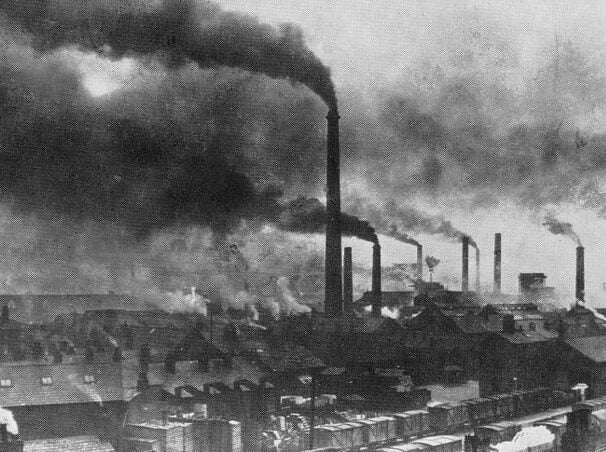
Facing the facts: carbon offsets unmasked
A series of articles debunking the most frequently used corporate myths about carbon offsets.
Since the possibility of a carbon dioxide (CO2) trading scheme was first introduced during the 1997 UN climate negotiations in Kyoto, carbon offsets have come to dominate policy discussions internationally. The 1990s saw an expansion of corporate power, enabled by the rise of neoliberalism, which allowed the same corporations that caused much of the climate crisis to heavily influence the proposed ‘solutions’. Their proposals reflected, first and foremost, the imperatives of capitalism and continued economic growth.
These proposals were given significant weight, mainly by Western policymakers, and, consequently, in international climate negotiations. It is unsurprising that a core proposal to address the climate crisis was the creation of a new industry, which included investment opportunities with the potential to profit from the climate crisis.
The international carbon market was born in this context.
This market, specifically carbon offsetting, is based on myths and fallacies that do not stand up to scrutiny. As international climate debates intensify globally, SOMO is publishing a series of articles debunking the most frequently used corporate myths about carbon offsets.
Facing the facts about carbon offsets
The ‘Facing the facts: carbon offsets unmasked’ series summarises the wealth of evidence demonstrating that carbon offsetting does not work. On the contrary, offsetting fundamentally undermines emissions reduction, forest protection, and human rights. Such false solutions must be abandoned if the world is to move forward in an effective and just manner.
This series mainly focuses on forest-based carbon offset projects, which have been the main form of carbon offsetting in the voluntary market.
As we move through this series of articles, we point to credible and vital actions to address the climate crisis effectively while putting justice at the centre.
A brief history of colonialism, climate change and carbon markets
Climate change is embedded in the history of colonialism and capitalism. It is important to reflect on this history in order to better understand the emergence and promotion of the carbon market.

To achieve real emission reductions, carbon offsetting needs to end
Myth: “Carbon offsets reduce emissions”
The carbon offset industry cannot credibly claim to reduce emissions in any significant or meaningful way. It is largely a paper exercise where calculations rely on exaggerated baselines and/or hypothetical future scenarios that cannot be proven.

Regulation to reduce CO2 emissions is the most effective way to address climate change
Myth: “Pricing carbon is the most efficient way to make polluters pay”
The extraction and burning of fossil fuels drive the climate crisis, not the lack of a price tag on carbon. Pricing carbon has only created a system in which industries are allowed to “pay to pollute” and maintain business as usual.

The offset industry, riddled with conflicts of interest, is not fixable
Myth: “Flaws in carbon offsetting can be fixed”
New methodologies do not resolve the false equivalences that are hard-wired into the very DNA of the carbon offset industry, nor do they resolve the conflicts of interest in how projects are verified.

Carbon offsets are an obstacle to real climate solutions
Myth: “Carbon offsets are vital to address the climate and deforestation crises”
Carbon offsets are far from the best option for addressing climate change and deforestation. They obstruct and delay much-needed governmental regulatory action by creating an illusion of positive corporate activity.

Carbon offsets are diverting money away from climate action in the Global South
Myth: “Carbon offsets are the most efficient way to finance climate action in the Global South”
There is growing evidence that very little of the money made in the carbon offsetting industry ends up with the communities and countries where offset projects are implemented.

Carbon offsets often disenfranchise communities
Myth: “Carbon offsets bring added benefits to communities”
Carbon offset projects frequently lead to abuse and often require people to give up their livelihoods and control over their territories in return for uncertain and volatile carbon market benefits.

Climate leadership means reducing real emissions
Myth: “Companies that offset their emissions decarbonise faster and are climate leaders”
Promotion of narratives about the good performance and “leadership” of carbon credit users on climate action is, at the very least, misleading.

Scaling up carbon markets means scaling up emissions and abuse
Myth: “Carbon offsets need to be scaled up to have a real impact”
Scaling up carbon offsetting will result in scaling up emissions, injustice, dispossession, human rights abuse and, for some, corporate profits.

If not carbon offsets, then what?
Numerous initiatives already exist, and many alternative climate justice proposals are being developed by governments, groups, and movements worldwide. Here we outline some ideas outside of the “carbon offsets box”.

Acknowledgements
This publication is a collaboration between SOMO, Chris de Ploeg(opens in new window) , and data designers Leon de Korte(opens in new window) and Ted du Bois(opens in new window) . The authors would like to acknowledge Audrey Gaughran, Madhuri Prabhakar and Enora Regnier-Sharples for their valuable inputs and contributions at various stages of the process leading up to this publication.
Do you need more information?
-

Joanna Cabello
Senior Researcher -

Ilona Hartlief
Researcher

